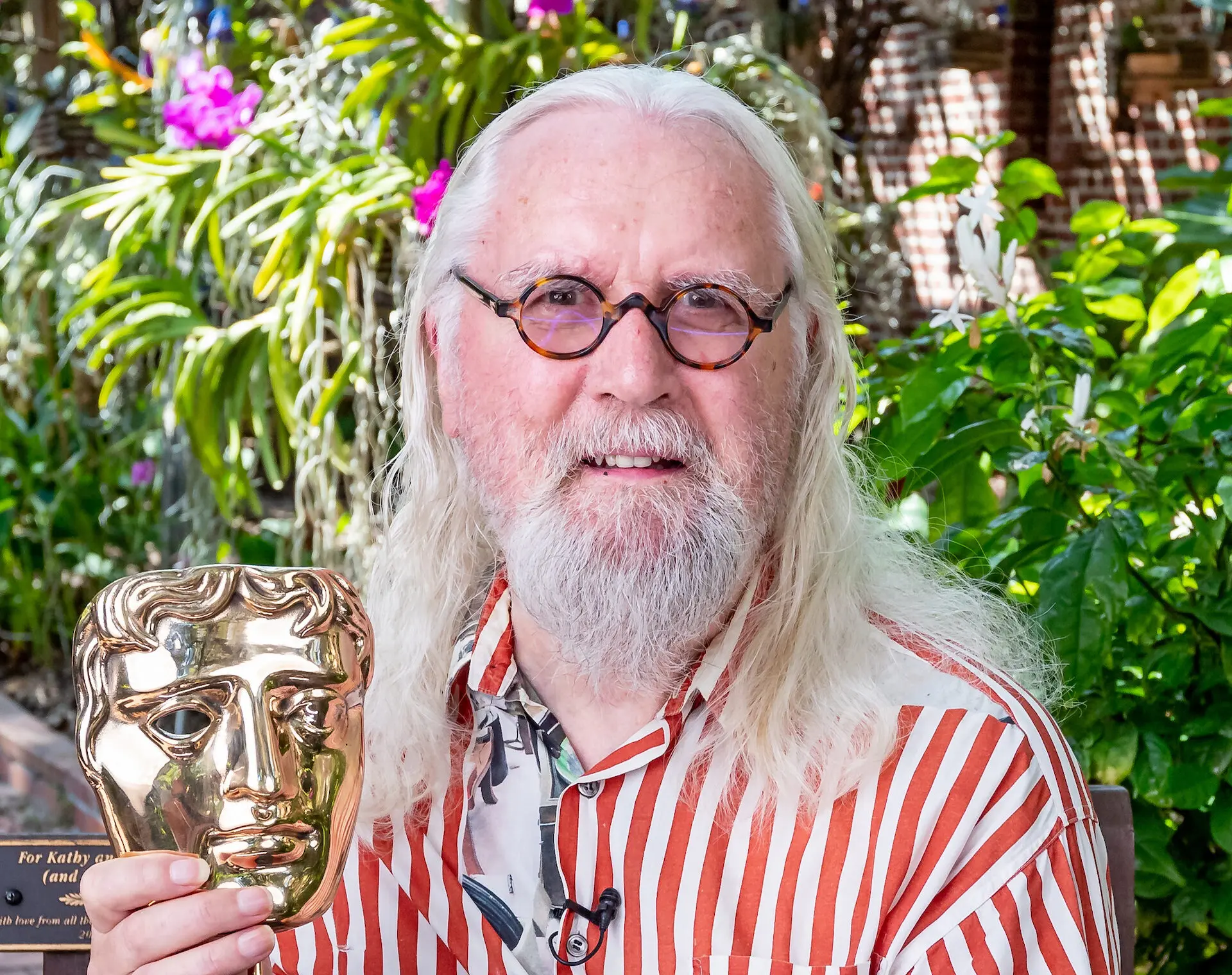Sir Billy Connolly, Scottish comedian, actor, writer and presenter has become the recipient of BAFTA’s highest honour, read on to find out more about him.
Words by Neil Smith – journalist, critic and contributing editor of Total Film magazine.
By a quirk of fate, BAFTA trophies tend to come Sir Billy Connolly’s way every 10 years. It was in 2002 that the gregarious Scot received a Special Award from BAFTA, while 2012 saw him celebrated by BAFTA Scotland for his Outstanding Contribution to Film and Television. It seems fitting, then, that 2022 should bring him the BAFTA’s highest honour, one he accepts with gratitude, humility and his usual good humour. “I had no idea the Fellowship existed but I’m told it’s a big deal,” he chuckles from his house on the Florida Keys. “So it’s lovely to be recognised and to become a jolly good fellow.”
Having hosted our Awards in 1995 and been nominated for one in 1998, the Big Yin is no stranger to the Academy or its activities. As he nears his 80th birthday, though, this much-loved knight of the realm is commendably clear-sighted about accolades in general. “I have a collection of shiny things that I’m very proud of,” he says. “But I never set out to get them or hunt them down. I don’t believe in aiming at it because if you don’t get it for whatever reason you’re all disappointed. Just do what you do well and you’ll find yourself a fellow before you know it.”
Born in a tenement flat in Glasgow in 1942, the young Billy Connolly surely had no ken that such elevation awaited him. Even back then, though, he had a talent for making people laugh, learning in the school playground it was “rather pleasant” to have an appreciative and captive audience. After leaving school at 15, he became a welder in the shipyards of the River Clyde and later helped build an oil platform in Nigeria. Yet, a passion to perform and a facility with the banjo led him to try his hand as a musician, a sideline that eventually saw him form a folk duo called The Humblebums with songwriter Gerry Rafferty.
The band enjoyed a measure of success, yet it was Connolly’s amusing asides and humorous introductions that really tickled the punters. Small wonder, then, that when The Humblebums broke up in 1971 he chose to concentrate on comedy, combining bawdy jokes with outlandish couture that marked him out as a fresh and original talent. “I was different from everyone else which really pleased me,” he says of an eye-catching wardrobe, which memorably included a set of banana boots designed by artist Edmund Smith. “I started to dress in a way that would grab people’s attention and it never let me down.”
Albums, tours and stage shows followed, but it took time for the comedian to make his debut in the nation’s living rooms.
“I would have loved to have been on television but they thought I was a bit outré,” he remembers. “There would be stuff in the newspapers about my ‘love of the lavatory’, which put people off from booking me.”






